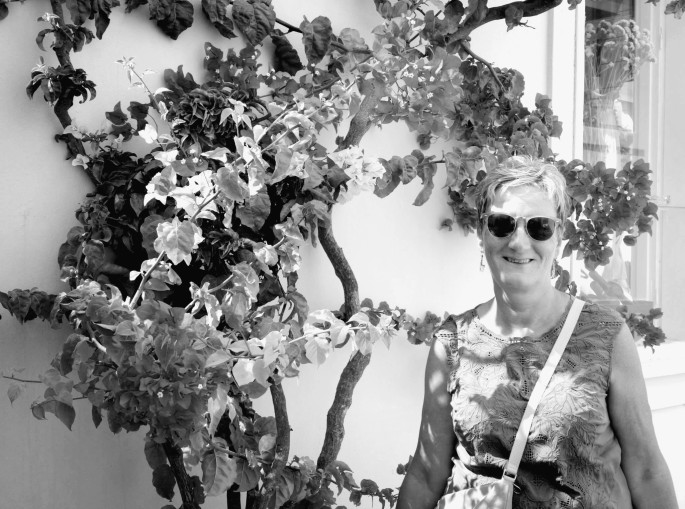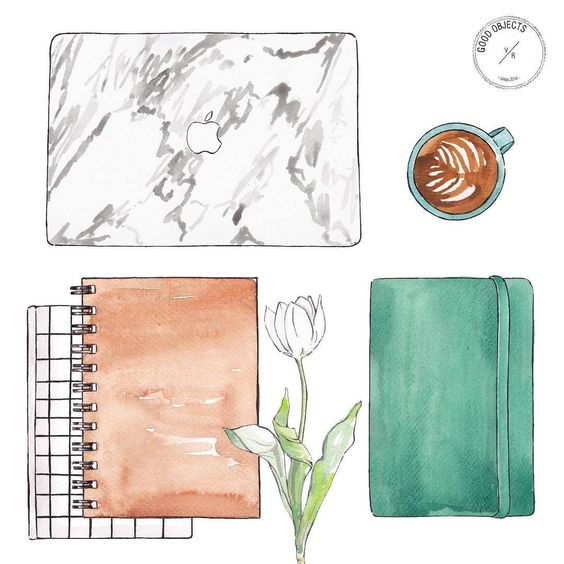Our mum. That’s how I know her. Greet Kinnaert. But besides the full time job of being my mum, she has had a full career as a nurse too. Something that she is very passionate about. And I see this every day. In light of my new series I Think We Should See Other People, I wanted to let her talk about that. So here’s an interview, honest and no-nonsense.
Voor een Nederlandse versie: klik hier!

So, tell me about yourself. Who are you?
My name is Greet, I’m Silke’s and Sander’s mum. September this year I’ll have been married for 25 years. I’m originally from a small farmers’ village called Hakendover. I grew up there, on the farm, with my two brothers and my sister. One of my brothers is also my twin brother. That’s basically it. I don’t get a lot of free time, because I work full time. What I like to do most is going on holiday, sleeping in, going to the movies once in a while. Small things. Going to a wellness, shopping, reading, which I do mostly on holidays. That’s it. Pretty boring, I believe, no?
You’re a nurse by profession. How long have you been working as a nurse? Tell me a little bit more about your career path.
I’ve been working for almost 27 years. In July this year it will have been 27 years since I graduated as a nurse. First, I worked at the White-Yellow Cross, in home nursing. Then, I started at a nursing home; I was drawn towards it because it allowed working in teams. I worked there for 24 years. In those 24 years, I had a number of different tasks, too. First, I worked day shifts as a nurse. After a while I went into night shifts, after which I eventually became an adjunct- head nurse. After that, I left. I went to a different nursing home, where I worked for another 3 years. In that time, I also went back to studying, to become a head nurse, because well, there’s just always been this itch, you know. August this year, I will have been working at nursing home Oasis in Tienen, as a head nurse, for two years. So really, I’ve always worked with the elderly, and will continue to do so.
Why the elderly then? Because there’s a whole heap of other nursing branches to choose from?
Because it’s quite technical work, but not as technical as working in a hospital. And I really enjoy the contact I get with the elderly. I find it very enjoyable because very often those are people with a certain wisdom that surrounds them.
Can you give an example of that?
I don’t know. I mean, even though you’re at a certain age, you keep learning new things, keep discovering. Life experience. If you knew now what I know today, which would be like me, only 20 years ago, you would have a totally different look on life. I think the older you get the less you worry about the nitty-gritty of things. Especially at the age that you usually end up in a nursing home. Everything’s just different. They no longer have to worry about work or other things.
You say you’ve worked both as a nighttime and daytime nurse. Is there a big difference between the two? Which of the two do you prefer?
Working night shifts, you don’t really get a lot of interaction with the residents. Or less in any case. There might be some good conversations with someone late at night, because you simply get more time. People might not be able to sleep, they lie awake racking their brains. That’s when, once in a while, you can have some fruitful conversations. But you shouldn’t keep them up at night either, of course (laughs).
Why did you choose this profession? Was it a “calling” as it is sometimes referred to or did you slowly move into it? Or did you choose nursing out of practical considerations, like job security?
Definitely not practical considerations. I kind of did slowly move into it, through a couple of previous volunteering experiences. When I was 18 I volunteered to help out with the recreational organisation of activities for the elderly at a nursing home. It was around the time I had to make a decision about what I wanted to do after high school. I didn’t have a clue. But by doing this over the summer holidays, I thought: “Why yes, maybe this is it.” I was allowed to help in taking care of the elderly. I still remember this one man (laughs) on the holiday camp. He seemed so old to me. It doesn’t feel that old anymore now… I’ve never forgotten this one man.
Why was that?
Odd but true, this man was very keen on me. I think he was in love with me, he cried when I had to go back home. Of course I didn’t base my decision solely on this, but it was certainly an experience that made quite an impression on me, the fact that those people are very much looking for friendship, affection. Maybe that’s what pulled me across. Other than that I was also part of a really fun team that organized the activities. And they told me at the camp that I was born to do this job. But in the end, I think it kind of has to be “calling” as it were; you have to love doing it. If you don’t like what you do, you won’t be doing it for very long. People can sense whether you enjoy your job or not, too.
What is the most important part of being a nurse to you?
To me, that is making sure you can take care of people the way you should be able to take care of them. To offer them a certain quality, the quality that they need and deserve. Also, what is important to me as well, is that I can be there for people, including my team. And what’s also important is that I can be myself, that I don’t have to lie to myself on the job. I have to find a certain joy at work. And a little bit of a challenge too. If I can’t find any of those, I’ll have to stop, it has to continue to be exciting (laughs)
So how does that translate to a regular day at work, this being able to offer quality and care?
I think it resonates through nursing tasks. When people ask me something, about their medication for example, they know that I am the one they can talk to, because there’s not that many nurses. If I get a question like that, or if I can fix a problem, I find that very important. And if, at the end of the day, I can go into one of the resident’s room and have a quick chat with them, even if it’s only for 2 or 3 minutes. Unfortunately, I’m not always able to do that.
I’m sure a lot of things happen at work? What’s the funniest or saddest thing that has ever occurred?
I always find it very sad when a couple comes to live at our nursing home and one of the two passes away. That’s always heartbreaking. What’s funny though, is when despite all the misery, we can still laugh about it all. When there’s yet another day when there’s not enough nurses on our floor, or when one of the residents has been up to no good; we have to be able to laugh about those things. Despite all the misery that crosses your path on that day. And that’s nice. But of course there’s also small things that are funny, like this little lady who comes into our office every morning and asks “So, how’s it going?” While in fact we should be the ones asking her!
With the recent cuts on healthcare, I’m sure work pressure is up, also in your department. How do you deal with this pressure? And how do you make sure your team remains functioning
I try to find power with those that do stay positive, despite all the pressure and continuous changes. That’s what makes my day. Even if it’s not all rainbows and butterflies, I try to see the positive in everything. I try to encourage my team even more, and praise them a little extra for all the effort they put in. And when it comes to me and work pressure: sometimes, I admit, I’m not very good in handling that. I don’t cope very well. But what is important, however, is that I have a bunch of great colleagues, other head nurses, and the managing board. If I’m ever no longer able to do rely on them, I think I’m done. And home of course, I have a safety net back at home which is very important to me.
Because of this same pressure, the popularity of the nursing profession may be in danger. There’s job security of course, but is there anything else that keeps you motivated and is there something you could say to motivate those that may be considering the profession?
To me, there is only one rule that applies to becoming a nurse: it has to be a sort of calling, like you mentioned before. If you’re only doing the job because of money, you won’t be doing it for a very long time. People, our residents, know very quickly who loves their job and who doesn’t, who works with their heart and who doesn’t. I, too, can immediately tell whether someone works for money or because they love what they do and are motivated.
Do you have anything else you would like to add?
I’m a very curious person; I’m also a bit of a control freak. I like to know everything. I like to keep things under control. That’s not always a good thing, because it’s not always possible to do so. I tend to have very high goals for myself, as well as for others.
Is that why you chose to become a head nurse?
Maybe partly, yes. Because I like to control everything just a little bit. A little bit! Yes, I like to be boss (laughs). You’re not actually going to put that in here, are you? People from work might actually be reading this, you know! I don’t know, it’s just this feeling that I have inside. I’ve tried to deny it, this urge to become a head nurse, but it’s impossible. This job is my job; it was made for me, no matter how hard it gets. It’s the best job I’ve ever had. Isn’t that wonderful?


